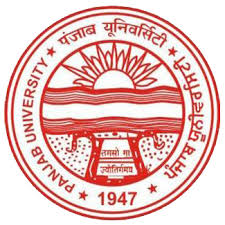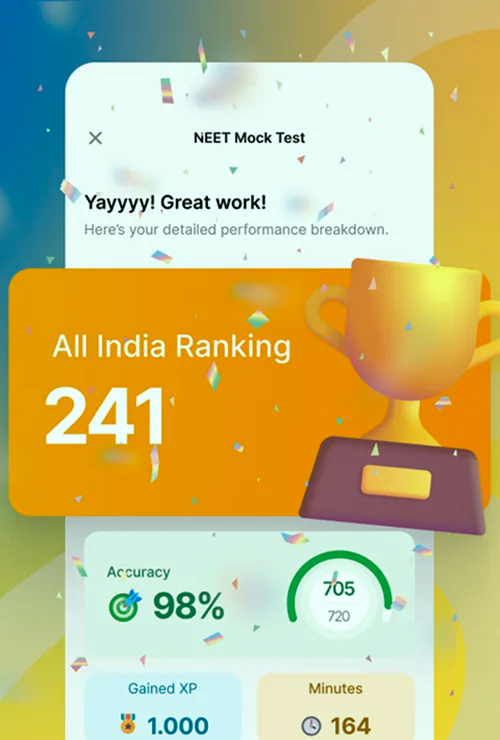General Information
Panjab University is one of India's oldest and most prestigious institutions. It is a public university with a unique "Inter-State Corporate Body" status. It is not a Central or State University in the traditional sense. It receives funding from both the Central Government and the state of Punjab.
Established in 1882 in Lahore (present-day Pakistan), the university was relocated to its current, modern campus in Chandigarh in 1956 following the partition of India. It is renowned for its high-quality research, vast campus, and significant contributions to academia.
Key Recognitions & Rankings
Type: Inter-State Corporate Body (Public)
Recognition: University Grants Commission (UGC), AICTE, BCI, PCI, NMC
NAAC Grade: Accredited with the highest 'A++' Grade
UGC Status: Recognized as a 'Category I' University, granting it significant academic and administrative autonomy.
NIRF Ranking (2024/2025):
University: Ranked #38 among all universities.
State Universities: Ranked #5.
Pharmacy (UIPS): Ranked #44 in India.
Innovation: Ranked in the 11-50 band.
MCI Recogination
Recognized for 50 seats. Recognised for increase of seats from 50 to 100 when degree granted on or after December,2017. Permitted for 100 to 150 renewal of permission u/s 10(A) for 2020-21, Recognized for 50 seats. Recognised for increase of seats from 50 to 100 when degree granted on or after December,2017. Permitted for 100 to 150 renewal of permission u/s 10(A) for 2020-21. Permitted for Renewal of 100-150 seats for the academic year 2022-23. Permitted (4th renewal) and 5th batch for the academic year 2023-2024. Annual renewal permission granted for 150 MBBS seats for AY 2024-25.
Campus Facilities
The Campus: A Self-Contained City
The university's main campus in Chandigarh is a sprawling, self-sufficient entity.
Location: The main campus is spread over 550 acres in Sector 14 and Sector 25, Chandigarh.
Vibe: The campus is famous for its red-brick, modernist architecture (designed by Pierre Jeanneret) and its lush greenery. It functions as a self-contained township with a vibrant academic and social life.
Infrastructure & Facilities:
Academic Blocks: 74 teaching and research departments, 15 centers/chairs.
Library: The A.C. Joshi Library is a five-story, air-conditioned building with over 7 lakh publications and a 24-hour reading hall.
Iconic Buildings: Home to the Gandhi Bhawan (an architectural marvel), the Fine Arts Museum, and the Student Centre (a popular social hub).
Healthcare: Operates the Bhai Ghanaiya Ji (BGJ) Institute of Health, a full-fledged health center with doctors, labs, and 24x7 ambulance services for all students and staff.
Amenities: Owns its own shopping center, post office, bank (SBI branch), and a community radio station (Radio Jyotirgamaya 91.2 FM).
Sports: A massive sports complex with an international-standard swimming pool, diving pool, 400m grassy athletic track, multiple gyms, and grounds for cricket, football, hockey, tennis, and basketball.
Hospital & Medical Facilities
Leading tertiary care hospital attached to the institution
Healthcare & Medical Education (MBBS)
Panjab University does not offer the MBBS course directly on its campus. Its "Faculty of Medical Sciences" acts as the affiliating university for two premier government medical and dental colleges in Chandigarh:
Government Medical College and Hospital (GMCH), Sector 32, Chandigarh
Dr. Harvansh Singh Judge Institute of Dental Sciences & Hospital, Sector 25, Chandigarh (This institute is on the PU campus but managed by the Chandigarh Administration).
Students in these colleges receive their MBBS or BDS degrees from Panjab University. The university's on-campus health-related courses are focused on pharmaceutical sciences and biomedical research.
Fee Structure
State University Affordability
Fee Structure
As a public institution, PU's fees are highly subsidized, especially for traditional courses. Self-financed courses like B.E./B.Tech and MBA have higher fees.
City Details
Hostel & Mess
Campus Living: Hostel Facilities
Panjab University is one of India's largest residential universities.
Accommodation: It has 17 hostels (8 for boys, 9 for girls) and a working women's hostel, accommodating over 6,700 students. Allotment is based on merit and category, primarily for students from outside Chandigarh.
Amenities: Rooms are furnished with a bed, table, chair, and cupboard. Each hostel has its own dining hall, common room, canteen, and sports courts (volleyball/badminton).
Dining: Mess facilities are compulsory for all hostellers.
Cost: Hostel fees are paid quarterly and are extremely economical.
Hostel Fee (Annual): ~ ₹5,000 - ₹7,000 (Includes rent, electricity, maintenance, etc.)
Mess Charges: Paid separately. A refundable security deposit (~₹1,300) is taken. Monthly mess bills are based on actual consumption, typically ranging from ~₹3,000 - ₹4,000.
Miscellaneous
Admissions & Career Pathways
Admission Process
Admission is almost entirely entrance-based, using a mix of national and university-level tests.
B.Tech (UIET/UICET): Admission is based on JEE (Main) rank, followed by counselling conducted by JAC Chandigarh.
MBBS / BDS (Affiliated): Admission is based on NEET-UG rank. Counselling for All India Quota is by MCC, and for the UT Quota, it is by GMCH (Chandigarh).
MBA (UBS): Admission is based on CAT scores, followed by GD/PI.
UG Courses (B.Pharm, B.Sc Hons, BA/B.Com LLB): Admission is through the university's own PU-CET (UG) (Panjab University Common Entrance Test).
PG Courses (MA, M.Sc, M.Com, MCA, LLM, M.Ed): Admission is through the university's own PU-CET (PG).
Law (3-Year LLB): Admission is through the PU-LLB Entrance Test.
Placements & Career Outcomes
PU has a strong placement record, especially from its professional institutes (UBS, UIET, UIPS).
University Business School (UBS):
Highest Package (2024): ₹58.48 LPA
Average Package (2024): ₹13.7 LPA
UIET (B.E./B.Tech):
Highest Package (2023): ₹45 LPA
Average Package (2023): ~ ₹8.89 LPA
Recruiters: Top recruiters include Deloitte, American Express, Adani, Dabur, Infosys, Sapient, HP, Nestle, HDFC Bank, ICICI Bank, and Tolaram.
Information for NRI / Foreign Nationals
Panjab University has a dedicated "Dean, International Students" office and reserves seats for this category.
Collage Images Gallery
Facilities & Campus Life
Well-equipped Library
Experienced Faculty
Computer Lab
Sports Activities
Heritage Campus
Frequently Asked Questions
Why Consult With Us?
- 15+ years of experience in medical education counseling
- 5000+ students successfully guided
- 50+ partner universities worldwide
- Free initial consultation with no obligation














